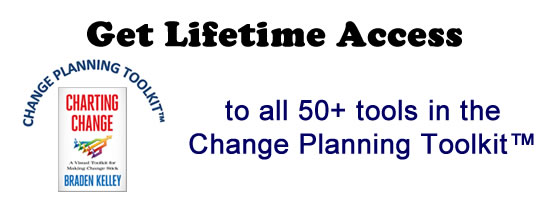Healthy Dose of Amnesia

When doing both strategic planning and innovation work the biggest hurdles are your own experiences, world-views, and knowledge of the market and players in it.
Sounds odd, I understand. You’ve worked hard to come to your understanding. Still, don’t trust it.
These hurdles create blind spots, biases, and fatal assumptions. Don’t believe me. Look to the market for example after example.
Large telephony companies never considered Skype a threat because Skype didn’t have the same set of concerns—large capital-intensive infrastructure, billing departments, etc. They saw Skype as a novelty for early-adopters, until, out of nowhere it goggled up more than 12% of the international call market and also became one of the leading professional conferencing mediums. Once Microsoft paid $8.5 billion for Skype they understood the threat.
Or, look at another infamous example. Taxi companies everywhere—and even car manufacturers these days as fewer consumers sense the need to own their own vehicles—never saw ride-share services as a viable threat until it was too late. They found themselves losing market share and playing defensive, which is never a winning growth strategy.
When trying to predict change or see net new opportunities and threats our past inside an industry can be a damaging curse. The old risk-aversion theory of most private equity groups—those who find someone with previous industry experience to lead a company they have bought—is flawed. If they wanted exponential growth, they’d insist in hiring leaders with experiences in other areas, other fields. Only then can a category be re-envisioned and new, fast growth can occur.
The lesson here is clear. If you want to win, start outside your existing mental model, your existing paradigm, your existing known base of experience.
As you start a strategic process or an innovation discipline, bring in those who will force you to confront your own blind spots, get off your old soapboxes, and generate some new thinking.
Instead of yea-sayers and sycophants, companies need to reward their internal skeptics. Let them run a planning meeting. They won’t pretend to know all of the answers. More important, they will challenge all of the default myths and orthodoxies of the culture and business model.
Give them support and room to dig for deeper insights, new ways to be in the market, and challenge the way the category functions today. If you aren’t blessed with such internal skeptics, then outsource a fearless and honest facilitator to lead these sessions.
The point is you have to have a different frame, a different lens, and different mindset than your normal day-to-day running of the business. You have to ask hard questions. You have to push where you are uncomfortable—new revenue models, different skill sets, casting off programs that no longer add value.
This is the power of amnesia, and it is a critical soft skill of effective leaders. Without it you might as well drive a taxi in a field owned by Uber and Lyft.
Image credit: itspsychology.com
Wait! Before you go…
Choose how you want the latest innovation content delivered to you:
- Daily — RSS Feed — Email — Twitter — Facebook — Linkedin Today
- Weekly — Email Newsletter — Free Magazine — Linkedin Group
 Michael Graber is the managing partner of the Southern Growth Studio, an innovation and strategic growth firm based in Memphis, TN and the author of Going Electric. Visit www.southerngrowthstudio.com to learn more.
Michael Graber is the managing partner of the Southern Growth Studio, an innovation and strategic growth firm based in Memphis, TN and the author of Going Electric. Visit www.southerngrowthstudio.com to learn more.
NEVER MISS ANOTHER NEWSLETTER!
LATEST BLOGS
Four ways you can ensure employees take accountability for their work
One of the most important driving factors for any successful business is a high-performing team. Having people working for you…
Read MoreWhat is digital upskilling and why is it important?
Photo by Annie Spratt on Unsplash In a world of business that never stands…
Read More


